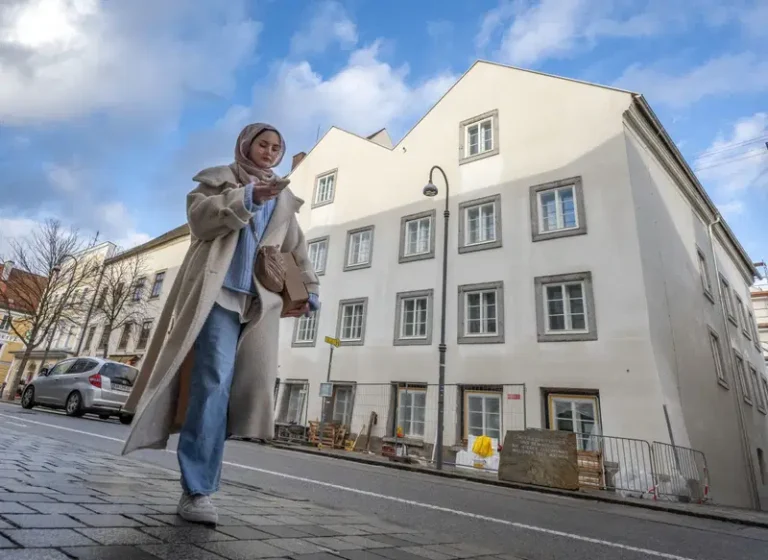
The European Union (EU) has awarded postgraduate scholarships to 142 young Nigerians for the 2024-25 academic session under its prestigious Erasmus+ program.
This marks the sixth consecutive year that Nigeria has led in Africa as the top recipient of these scholarships, also ranking among the top five globally, reports Channels TV.
Announced by the program organisers in Brussels, the initial batch of Nigerian awardees is set to begin their studies in September 2024, with the possibility of more beneficiaries being added.
These scholarships provide an opportunity for recipients to study in at least three different universities across multiple countries within and outside the EU over a 12-24 month period.
In a statement, the EU embassy in Abuja highlighted that the Nigerian awardees have been admitted to highly sought-after programs such as Renewables-based Power Systems, Chemical Innovation and Regulation, Public Health in Disasters, Biorefinery, European MSc in Marine Environment 2030, Soil Science, Systems for Sustainable Engineering, Sustainable Mineral and Metal Processing Engineering, and Sustainable Ship and Shipping, among others.
The Erasmus Mundus Joint Master Degree (EMJMD) program, a key component of Erasmus+, offers scholars a master’s degree awarded jointly by a consortium of universities. This year marks the 20th anniversary of the EMJMD program, which has had a transformative impact on individuals, higher education institutions, and countries both within and outside the EU.
At a pre-departure orientation in Abuja, EU Ambassador to Nigeria and ECOWAS, Ms. Samuela Isopi, emphasized the program’s transformative influence. She noted that Erasmus Mundus brings together top universities from the EU and beyond to create integrated international study programs that merge the best elements of each national curriculum. These programs are known for their high academic standards, unique mobility paths, and generous financial support.
According to Ms Isopi, the EU continues to support Nigeria’s higher education sector through key funding programs like Erasmus+ and Horizon Europe, which focus on research and innovation.
Erasmus+ not only offers flagship scholarship programs but also supports mobility and short stays in Europe for researchers, students, and staff, and enhances the capacity of universities and TVET institutions through joint projects with European partners. Horizon Europe provides opportunities for Nigeria-based researchers and institutions, particularly through the “Africa Initiative II” aimed at African scientists.
The EU’s commitment to education in Nigeria aligns with national goals, emphasizing equitable access to quality education and teacher training. Collaborative projects with the governments of Kano, Sokoto, Jigawa, Adamawa, Bayelsa, Oyo, Katsina, Enugu, and Plateau states aim to strengthen the education system, increase the use of digital technology for teaching and learning, and promote green skills and knowledge.
Between 2021-2027, the EU would have invested EUR 45.4 million in these education projects.The European Union (EU) has awarded postgraduate scholarships to 142 young Nigerians for the 2024-25 academic session under its prestigious Erasmus+ program.
This marks the sixth consecutive year that Nigeria has led in Africa as the top recipient of these scholarships, also ranking among the top five globally, reports Channels TV.
Announced by the program organisers in Brussels, the initial batch of Nigerian awardees is set to begin their studies in September 2024, with the possibility of more beneficiaries being added.
These scholarships provide an opportunity for recipients to study in at least three different universities across multiple countries within and outside the EU over a 12-24 month period.
In a statement, the EU embassy in Abuja highlighted that the Nigerian awardees have been admitted to highly sought-after programs such as Renewables-based Power Systems, Chemical Innovation and Regulation, Public Health in Disasters, Biorefinery, European MSc in Marine Environment 2030, Soil Science, Systems for Sustainable Engineering, Sustainable Mineral and Metal Processing Engineering, and Sustainable Ship and Shipping, among others.
The Erasmus Mundus Joint Master Degree (EMJMD) program, a key component of Erasmus+, offers scholars a master’s degree awarded jointly by a consortium of universities. This year marks the 20th anniversary of the EMJMD program, which has had a transformative impact on individuals, higher education institutions, and countries both within and outside the EU.
At a pre-departure orientation in Abuja, EU Ambassador to Nigeria and ECOWAS, Ms. Samuela Isopi, emphasized the program’s transformative influence. She noted that Erasmus Mundus brings together top universities from the EU and beyond to create integrated international study programs that merge the best elements of each national curriculum. These programs are known for their high academic standards, unique mobility paths, and generous financial support.
According to Ms Isopi, the EU continues to support Nigeria’s higher education sector through key funding programs like Erasmus+ and Horizon Europe, which focus on research and innovation.
Erasmus+ not only offers flagship scholarship programs but also supports mobility and short stays in Europe for researchers, students, and staff, and enhances the capacity of universities and TVET institutions through joint projects with European partners. Horizon Europe provides opportunities for Nigeria-based researchers and institutions, particularly through the “Africa Initiative II” aimed at African scientists.
The EU’s commitment to education in Nigeria aligns with national goals, emphasizing equitable access to quality education and teacher training. Collaborative projects with the governments of Kano, Sokoto, Jigawa, Adamawa, Bayelsa, Oyo, Katsina, Enugu, and Plateau states aim to strengthen the education system, increase the use of digital technology for teaching and learning, and promote green skills and knowledge.
Between 2021-2027, the EU would have invested EUR 45.4 million in these education projects.








